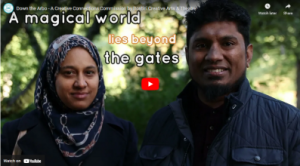Once again the not-for-profit sector is in the cross-hairs of the government in general and the Charity Commission in particular.
Oliver Dowden is the Culture Secretary and wrote an opinion piece (see 1) in the Sunday Telegraph on 12 September on the appointment of the New Charity Commission chair. The main point seem to be:
- The government gives us a lot of money and we should be grateful for that.
- Charities should only spend their money on charitable objectives.
On the surface both of these points seem valid. But I thought I would dig a little deeper. So let us look at the first.
As not-for-profits we do receive money from statutory sources to do our work. But, as we are supporting their citizens (we, the people) it seems less like a gift and more as a payment for work rendered. We are doing a job for them, we do it cheaply and effectively and so live up to our part of the contract. This is not a gift because they are magnanimous but an arrangement that we undertake to make peoples’ lives better.
The second point is raised as the new theme for the new Charity Commission chair – as usual new management means a new broom: out with the old and in with the new. We have to show that we are doing something.
The point is illustrated by the point that some not-for-profits have used their monies to take action that raises uncomfortable thoughts. The first example was that Guy’s and St Thomas Foundation removed a statue from the forecourt of a founder, Thomas Guy. This came as it was recognized that he had owned shares in the South Sea Company and that had a major rôle in the slave trade. The second example was a rebrand by the Churchill fellowship that was perceived to ‘air Sir Winston Churchill from its public profile’. According to Oliver Dowden this is ‘polishing their woke credentials’, and as ‘woke’ is being perceived to be something bad then it should be avoided.
My thoughts run thus: at the heart of not-for-profit action is the notion that there is a problem, something is not right. People then decide to do something about it. The problem may be poverty, isolation, racism or any of the ills that plague us. Some people will have a direct connection with the matter at hand, but many will not. In both cases there is compassion involved, there is a caring about something other than oneself. And for many of the not-for-profit there is no payment – our wonderful volunteers. Part of trying to fix something is to find out why it has gone wrong – what is its history. This may not be comfortable for some people, but it has to be done.
I am interested in history generally. I have some favourite periods that pique me more than others but I am always conscious that this is not a novel I am reading. Real lives were lived with real consequences.
For many British is the empire was a good thing, right. The sad answer is no, it was not. It is not different to any other empire that has existed. There have been many, Roman, Alexandrian, Ottoman and so on. The list is long but the character is the same. It is based on robbery with violence. Somebody wanted something that someone else had: land, money, glory. Those on the losing end would lose big though injury, death, famine, disease, slavery, begin the other in their own land.
In the same vein slavery was never a good thing, no matter who did it, and many nations did. It should not even be a topic for discussion.
My last point is regarding people – they are a fascinating study. Oscar Schindler was a reprobate: adulterer, crook, failed businessman. Yet, he saved lives in the Second World War. Winston Churchill is credited with winning the war (I would argue that many people did this) and yet there are some really unsavoury aspect to his character.
We cannot just ignore these aspects of our past (or anyone else’s), they are part of history and we need to learn from it. Yes, it makes us unconformable but we should not let this stop us. Especially, as this is part of understanding and understanding is part of the compassion that we have.
For most of us these issues do not matter as part of their particular not-for-profit mission. But, for some it will. Will the Charity Commission be looking into everything we do, and they become the arbiter of what messages we can put forth when it makes someone uncomfortable?
It may be the usual piece of bumph that put out every time a new person is put in post and that will be the last that we hear from it. But, in the political arena there is no such thing as unfair game when it comes down to looking for headlines.
Note
1. If you want to read the full text then the link is: https://www.gov.uk/government/news/culture-secretary-oliver-dowden-op-ed-on-appointment-of-new-charity-commission-chair?utm_medium=email&utm_campaign=govuk-notifications&utm_source=a84404bc-c8cf-45cc-9353-c2a45ec290da&utm_content=weekly.





